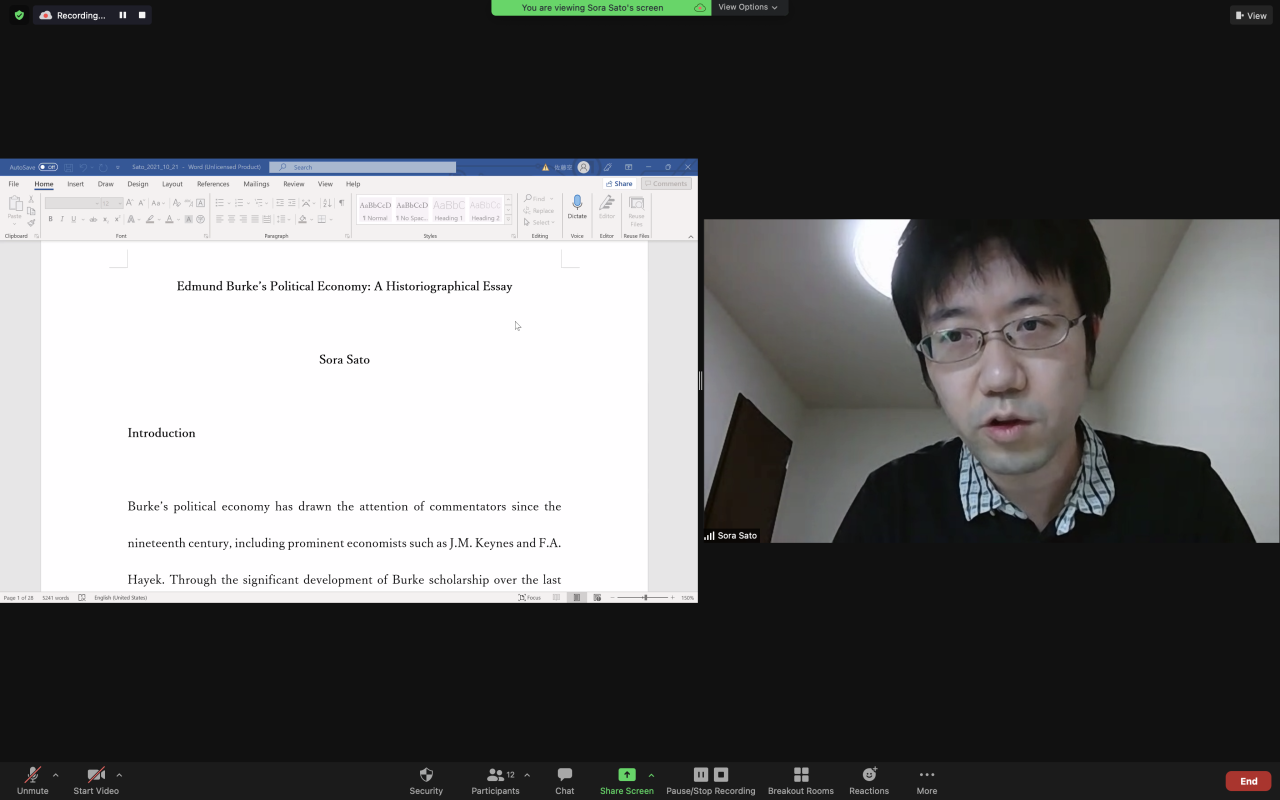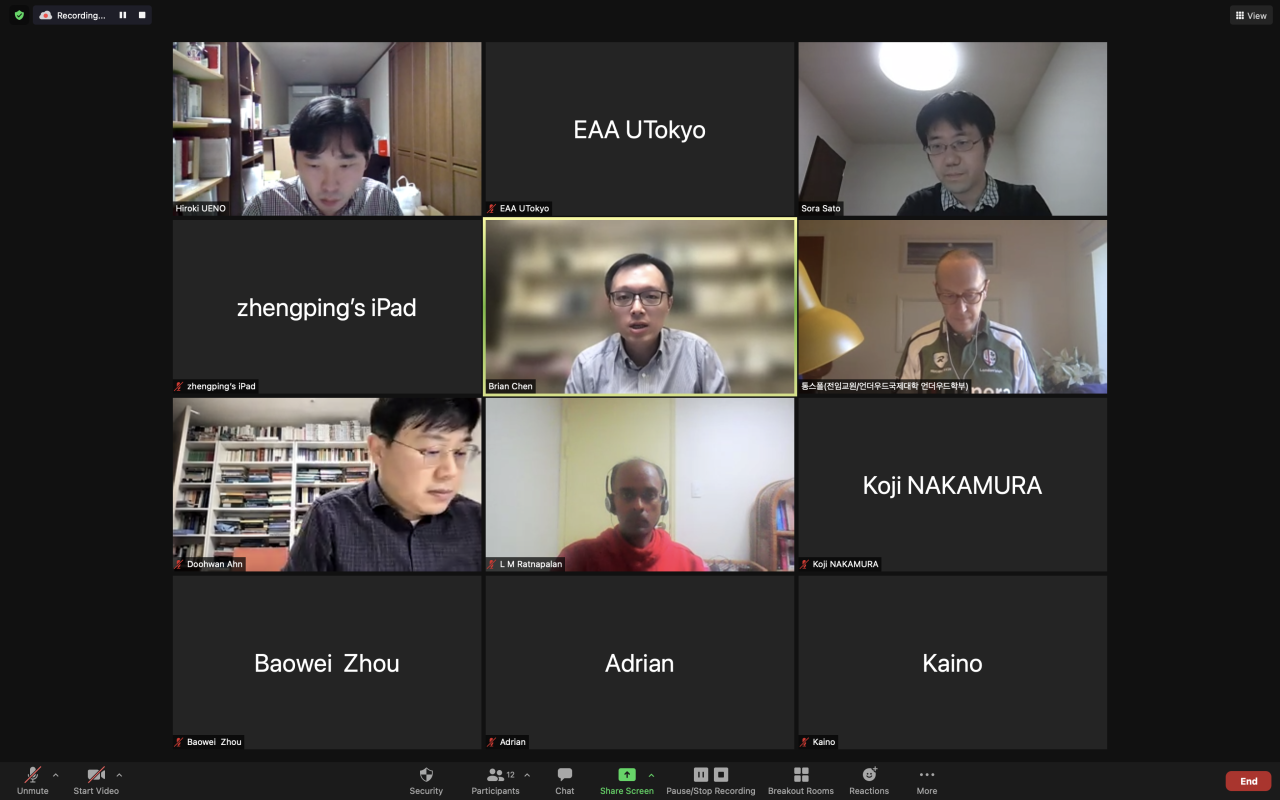On 21th October 2021, the East Asian Intellectual History Network (EAIHN), through the auspices of the EAA (East Asian Academy) at the University of Tokyo, hosted a talk by Sora Sato (Toyo University, Tokyo) entitled “Edmund Burke’s Political Economy: A Historiographical Review” After opening remarks by the chair, Shinji Nohara (University of Tokyo), Dr. Sato introduced his paper, discussing its main points. His talk was followed by two discussants’ comments and questions, Sato’s response to them, and a lively discussion among the conference participants. The abstract of the paper is as follows:
Edmund Burke has been regarded as a major thinker of eighteenth century Britain, and his political thought has been studied intensively during the last several decades. Although his idea of political economy was, perhaps, a relatively minor part of his thought, it has been commented by historians and economists since the nineteenth century. Burke has long been regarded as a laissez-faire economist, but the recent scholarship succeeded in complicating the picture by pointing to various aspects of his economic thought. For instance, although preferring a ‘freer’ trade to an unreasonable restriction on trade, he at times prioritized political interests, instead of economic ones. In 1982, J.G.A Pocock persuasively showed that Burke had employed a language of political economy in his attack on the French Revolution (Pocock 1982). In 1995, Francis Canavan pointed to the significance of the concept of property in Burke’s political economy (Canavan 1995). Most recently, Gregory M. Collins, indebted to Pocock, emphasised the role of morality in it (Collins 2020). However, there still seems to be some room to be explored. While Burke’s preference for free trade has often associated with Adam Smith’s political economy, its Irish origins have tended to be neglected by commentators. Although Burke’s connection to natural law tradition has often been pointed out, his reception of it has barely been detailed in relation to his political economy. Above all, Burke’s theory of money has been overlooked by the modern scholarship with a few exceptional cases. Like many of his contemporaries, Burke held that only money acquired through market transactions could not be ‘neutral’. Industry is the very source of wealth, and export increases when it vigorously works in society. If money supply increases through the increase of exportation, it will contribute to developing economy by stimulating both production and consumption. On the contrary, if money increases by the other means, it barely stimulates economic activities. Burke held to such a theory of money from the early phase of his career to the 1790s, when he effectively applied it to his critique of the French revolutionaries.


Reported by Sora Sato (Toyo University)








